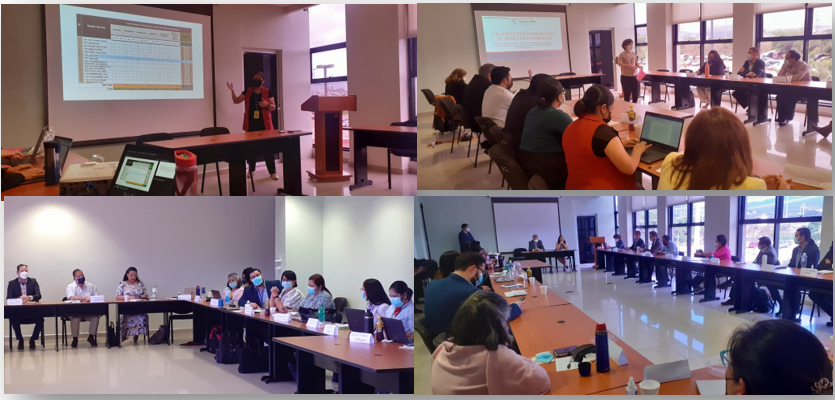
San José, Costa Rica, August 17, 2022. On August 11 and 12, the Inter-American Court held its first Seminar on Best Practice on Indigenous and Tribal Peoples’ Human Rights, the Right to a Healthy Environment and Human Rights Defenders, in Tegucigalpa, Honduras. Held in-person, the event was closed by the lawyer Elsa Calderón Godoy, Director of the “Francisco Salomón Jiménez Castro” Judicial School of Honduras.
The Seminar was attended by more than 40 officials from various public entities for the protection of human rights, including the Office of the Deputy Attorney General of the Republic, the Special Prosecutor for Ethnic Groups and Cultural Heritage of the Public Prosecutor’s Office, the Secretariat of Energy, Natural Resources, Environment and Mines, the University Institute for Democracy, Peace and Security of the National Autonomous University of Honduras (IUDPAS -UNAH by its acronym in Spanish), the National Human Rights Commission (CONADEH), among other institutions that implement best practice in the protection of human rights in Honduras.
The Seminar was led by the lawyers Patricia Tarre Moser, Director of Human Rights Studies, Juana María Ibáñez Rivas, Specialist Consultant in International Human Rights Law, Raquel Yrigoyen Fajardo, Vice President of the International Institute of Law and Society (IIDS) and Celeste Novelli, lawyer at the Secretariat of the Inter-American Court.
This first Seminar was held as part of the "Strengthening the Protection of Human Rights and the Rule of Law through jurisprudential dialogue, optimization of institutional capacities and compliance with the Judgments of the Inter-American Court of Human Rights in El Salvador, Guatemala and Honduras” project, signed with the Swiss Agency for Development and Cooperation (SDC), through which it seeks to optimize the capacities of judicial administration officers for the application of International Human Rights Law and the case law of the Inter-American Court of Human Rights.